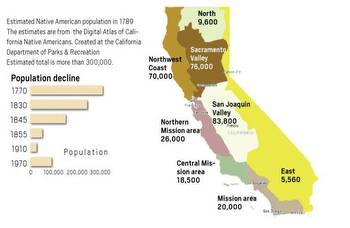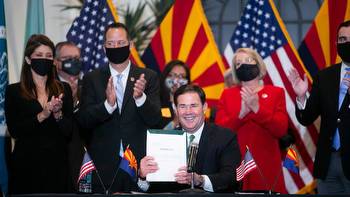Native Casinos May Have Just Hit the Jackpot

A corner of cyberspace could soon be federally recognized tribal land.
New federal rules could make it easier for Native American tribes to acquire land and broker deals with states for online sports betting, The Wall Street Journal reported.
A Big Payout
The federal framework that governs gambling on Native reservations was established in 1988 when Congress passed the Indian Gaming Regulatory Act, and Native casinos went on to bring in about $121 million in revenue that year. In 2021, they made $39 billion, which gives you a sense of how things are going for the industry.
The new rules proposed by the Bureau of Indian Affairs could create even greater boons for the Native gaming sector:
- One proposal suggests allowing online gambling under tribal-state compacts, meaning that as long as the server processing remote wagers is on tribal lands, the bet would technically be done on-reservation. This would be a big advantage for tribes as iGaming (which includes online sports betting and mobile poker) generated $5 billion in revenue last year, according to the American Gaming Association.
- Another rule proposes stripping down the arduous land-to-trust process that lets tribes obtain more property and add it to their reservations. In theory, this would provide more space for brick-and-mortar casinos.
Snake Eyes: Unsurprisingly, there's a whammy of opposition. Native reservations don't pay federal and state taxes on their gambling revenues, and that's fine when it's all physically done on-reservation, but competitors and local governments argue that a tribe having statewide access to mobile betting is unfair. In a letter to the Bureau of Indian Affairs signed by 20 state attorneys general, it said, "The proposed regulations would authorize an unprecedented expansion of tribal casino gaming--and would achieve that outcome by unjustifiably restricting the ability of state governments to adopt and enforce their own policies on gaming matters."





















